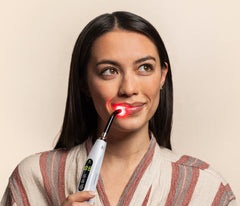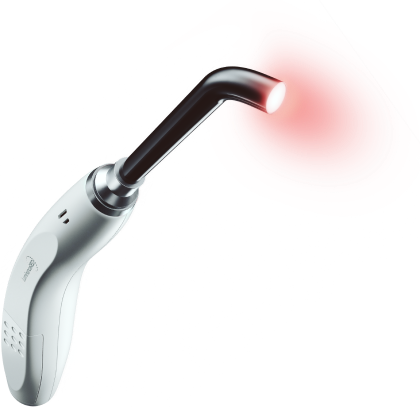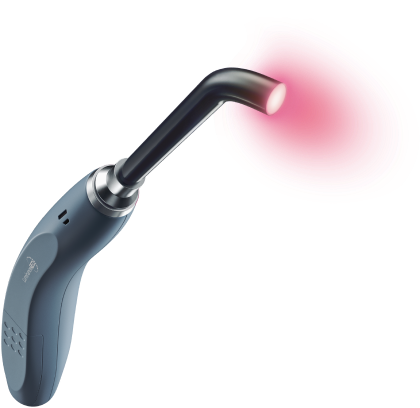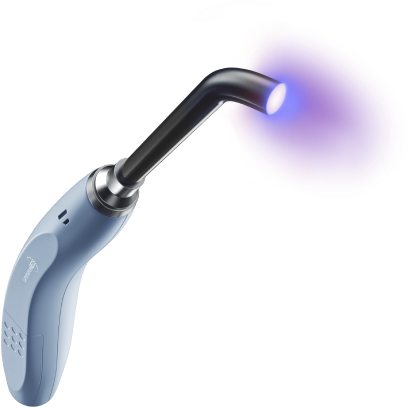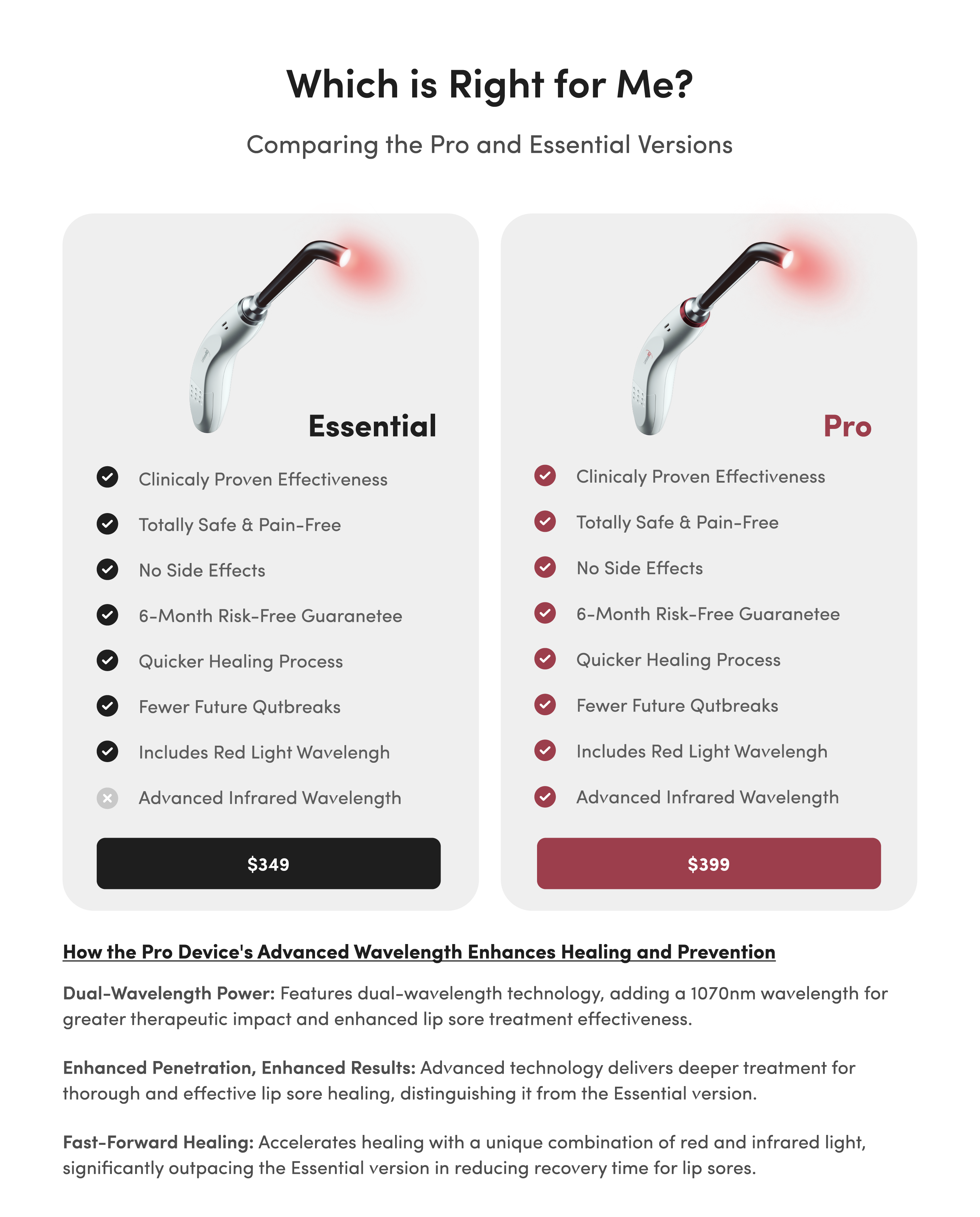5 Essential Oils for Cold Sores: How to Naturally Heal an Outbreak
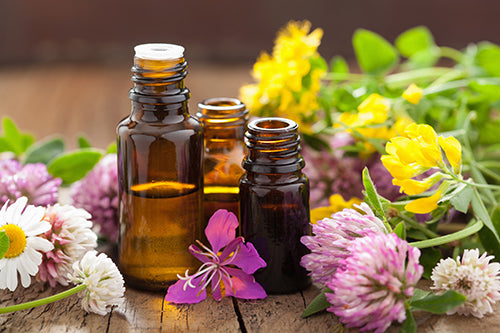
From honey to apple cider vinegar, there are a multitude of all-natural treatments for cold sores. Essential oils are among the most popular of these options. Research has shown some essential oils contain antiviral compounds that potentially reduce the discomfort associated with a cold sore outbreak. In this article, you will learn more about how the application of essential oils may heal redness, itchiness, and other painful HSV-1 symptoms, plus discover a new proven and effective natural treatment to heal your sores.
What Are Cold Sores? How Are They Spread?
In 2018, the World Health Organization (WHO) found that billions of people across the world live with HSV-1, a lifelong viral infection commonly acquired in childhood. Kissing is the most common mode of transmission, but you can also catch HSV-1 by touching an active sore and then touching your mouth.
Most people with HSV-1 experience fewer outbreaks with time, so it's difficult to pinpoint who has the virus. There are a few universal triggers for cold sores, yet some individuals never experience an initial outbreak. For others, cold sores emerge a few years after the moment of infection. Canker sores are sometimes confused with cold sores since both conditions cause lesions on or around the lips.
If you were recently exposed to someone with HSV-1, the incubation period typically lasts between two to 12 days. In the instance that symptoms never appear, experts recommend waiting at least 12 days before getting tested. If you develop lesions or mildly irritated skin around your mouth, see your primary care physician for a diagnosis.
Essential Oils for Cold Sores with Antiviral Properties
There are dozens of essential oils on the market, but not all are ideal for treating cold sores. Here are five essential oils you may consider using to soothe painful cold sores:
Tea Tree Oil
Tea tree oil is one of the preferred options for treating inflamed, red cold sores that scar. Produced from the Australian tea tree, this oil contains compounds that promote wound healing and may inhibit viral replication based on in vitro studies..
Eucalyptus Oil
Eucalyptus soothes cuts and burns, which can be beneficial for painful cold sores. In vitro studies show eucalyptus oil to reduce herpes virus infectivity and possess direct anti-viral effects.. In other words, eucalyptus may be a useful addition to your HSV-1 prevention treatments, as it could assist in stopping a full-blown cold sore outbreak. Furthermore, one in vitro study found that eucalyptus oil may be more effective than traditional HSV-1 treatments like acyclovir.
Lemon Balm Oil
Lemon balm may be useful to help prevent recurring cold sore outbreaks and reduce healing time. Apply a layer of lemon balm oil several times per day at the first sign of a cold sore.
Sandalwood Oil
Effectively treating cold sores means targeting the virus at the source. Topical treatments target the viral activity driving cold sore outbreaks, but not without potential side effects such as headaches and upset stomach. Sandalwood oil can help halt the replication of HSV-1 without similar side effects.
Thyme Oil
Thyme oil reduces HSV infectivity in vitro and its use may shorten the duration of a cold sore outbreak.
How to Use Essential Oils for Cold Sores
Essential oils may be all-natural, but that doesn't mean they come without side effects. Before you treat a cold sore with an essential oil blend, read up on the importance of carrier oils and potential unintended reactions to using essential oils, such as contact dermatitis.
Choosing a Carrier Oil
The number one side effect of essential oils is itching, burning, and irritation. The culprit? Using the wrong carrier oil or neglecting to use one altogether. Essential oils are potent, so mixing a few drops into a carrier oil decreases their intensity to protect your skin. Directly applying an essential oil blend for cold sores onto your skin will increase inflammation. You may have to experiment with different carrier oils before you find your best fit.
Common carrier oils include:
- Jojoba oil - Extracted from the seeds of the jojoba plant, this gentle carrier oil is ideal for people with acne-prone skin. Many popular oil cleansers and moisturizers use Jojoba oil, making it one of the safest choices for treatment.
- Coconut oil- This oil is often used for essential oil-based massages. It's non-toxic if accidentally ingested, but the high fatty acid content makes this carrier oil thick and a little waxy in texture. It works best as an overnight cold sore treatment. Coconut can be comedogenic so if acne breakouts start to occur, you should discontinue use.
- Olive oil- Many skincare and aromatherapy products contain olive oil. However, if you have acne-prone skin, olive oil isn't the best choice. Olive oil is comedogenic, so you may experience pimples around your mouth and if so, should discontinue use.
- Argan oil -Produced from argan trees native to Morocco, argan oil is a popular choice for essential oil blends and cosmetics. Argan oil contains vitamin A and vitamin E. However, one study found that vitamin E may irritate wounds and inflame scars.
- Sunflower oil -Like Jojoba oil, sunflower oil is gentle and non-irritating. Unlike Jojoba oil, which has a subtle, nutty aroma, sunflower oil has no odor. If you prefer fragrance-free products, use sunflower oil as the base for your essential oil blend for cold sores.
Testing for contact dermatitis
If you've never used essential oils to heal cold sores, start by performing a patch test. First, blend your essential oils with the carrier oil of your choice. Then, smear a layer of your essential oil blend beneath your ear or on the inside of your wrist. Loosely cover the test area with a bandage. Wait 2-3 days to see if skin-colored bumps, hives, an itchy rash, or red skin appear.
If you have a history of skin allergies, consult with your allergist or primary care physicians before using an essential oil blend for cold sores. Women, the elderly, and people with atopic dermatitis are more likely to have an adverse response to essential oils.
Essential oil toxicity
Toxicity is a less common side effect of using essential oils for cold sores. It's more likely to occur if you directly apply large amounts of essential oils on your lips and ingest them. Nausea, vomiting, coughing, shortness of breath, gagging, and drowsiness may occur due to essential oil toxicity. Always store essential oils away from children and pets.
Red Light Therapy: A Reliable Cold Sore Treatment
Many people prefer using all-natural remedies for cold sores over medications with unpleasant side effects. However, using essential oils for cold sores or may not reduce the severity of an outbreak. Treating cold sores with essential oils requires many daily applications to see benefits, and the mess is a hassle.
Before you buy another essential oil kit, try an FDA-registered, all-natural solution for cold sores. The Luminance RED emits a soothing red light that stops the herpes simplex virus from replicating among nerve pathways. Just two 60-second applications per day treats and prevents cold sores. To learn more about how the Luminance RED can help you, click here.







